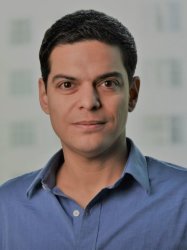Research Interests
My research activity focuses on mineral resources, from its extraction, processing, and use, to the links between critical raw materials and other resources, such as energy and water. I am particularly interested in developing frameworks that incorporate systems thinking and sustainability principles into the management of mineral resources.
Mineral resources will play a fundamental role in the green energy transition, and in the Advanced Mineral Processing Research Group we aim to deliver solutions to pressing challenges in the sector, based on an understanding of fundamental aspects of mineral processing operations. We combine novel experimental techniques and numerical modelling as tools for process and equipment evaluation and design, and collaborate closely with industry to facilitate the implementation and increase the impact of our research.
As part of an Imperial-X initiative, the Resources Observatory, we aim to create a digital twin of the physical economy. We are developing tools to study material flows that can inform policy-making and business strategy in response to emerging issues and transitions in the supply chains of key resources.
Guest Lectures
The role of fine particles in the transition from first to zero order kinetics (invited talk), EIT Raw Materials - Expert forum on fine particle flotation and sustainable use of water in mineral processing, HZDR Dresden, 2019
Mineral Processing Research and Innovation in the Digital Age (invited workshop panellist), XXIX International Mineral Processing Congress, Moscow, Russia, 2018
Enhancing froth flotation – bench scale studies of the effect of operating conditions and cell design, University of the Witwatersrand, Johannesburg, South Africa, 2018
How to optimise flotation for increased mineral production using the Peak Air Recovery methodology (invited speaker), Mines & Technology, London, 2017
Developing CFD modelling frameworks for mineral processing (invited speaker), 1st Chinese Mineral Processing Congress (2017), Central South University, Changsha, China, 2017
Emerging Young Leaders Forum (invited plenary panellist), XXVIII International Mineral Processing Congress, Quebec, Canada, 2016
Froth Flotation Innovation and Research, The Minerals Engineering Society - Mineral Processing Symposium, UK, 2015
Introduction to froth flotation modelling, AMIDIQ 2015 pre-conference workshop, Mexico, 2015
Modelling flotation - the importance of the froth phase, Universidad de Antofagasta / CICITEM, Chile, 2013

